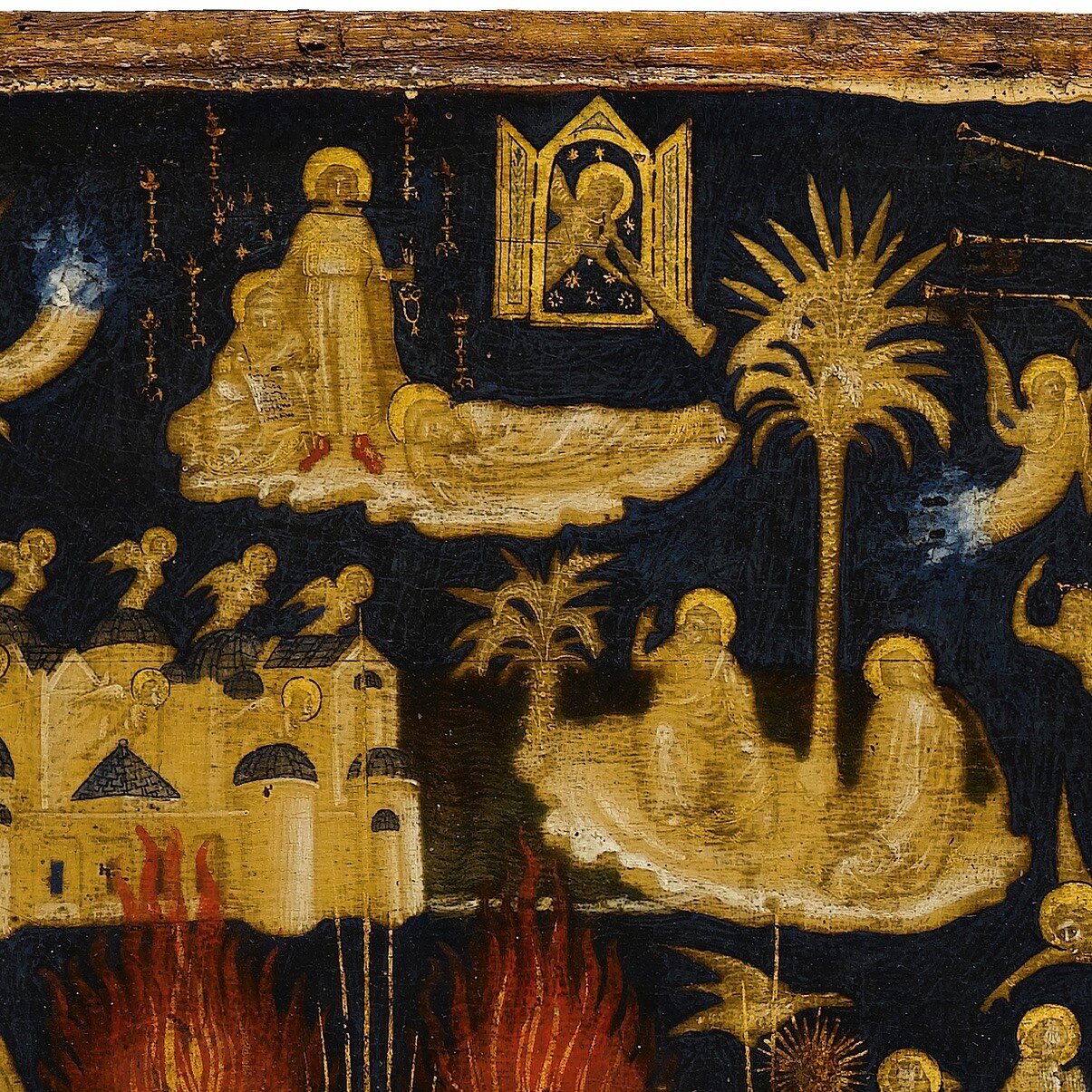[ONLINE] Travelling Objects, Travelling People: Art and Artists of Late-Medieval and Renaissance Iberia and Beyond, c. 1400–1550
Conference, The Courtauld Research Forum
Thursday 10 December 2020
1:00 pm - 5:35 pm GMT
Friday 11 December 2020
1:00 pm - 6:00 pm GMT
Speakers include
Vanessa Antunes - Universidade de Lisboa
Piers Baker-Bates - The Open University
Joana Balsa - Universidade de Lisboa
Fernando António Baptista Pereira - Universidade de Lisboa
Nelleke de Vries - Ludwig-Maximilians-Universität München
Kelley Helmstutler di Dio - University of Vermont
Caterina Fioravanti - Independent Scholar
Bart Fransen - KIK/IRPA
Eduardo Lamas Delgado - KIK/IRPA
Eva March - Universitat Pompeu Fabra
Encarna Montero - Universitat de València
Francisco Montes - Universidad de Sevilla
Ricardo Nunes - Universidade de Lisboa
Elena Paulino - Universidad Complutense de Madrid
Alexander Röstel - Bibliotheca Hertziana, Rome
Maria Sanz Julian - Universidad de Zaragoza
Marco Silvestri - Universität Paderborn
Maria Vittoria Spissu - Università di Bologna
Organised by
Book Now
This is a live online event.
Please register for more details. The platform and log in details will be sent to attendees at least 48 hours before the event. Please note that registration closes 30 minutes before the event start time.
If you have not received the log in details or have any further queries, please contact researchforum@courtauld.ac.uk.
Travelling Objects, Travelling People aims to nuance our understanding of the exchanges and influences that shaped the artistic landscape of Medieval and Renaissance Iberia. Traditional narratives hold that late fifteenth-century Iberian art and architecture were transformed by the arrival of artists, objects and ideas from France, the Low Countries, and eventually Renaissance Italy, while 1492 marked a chronological rupture and the beginning of global encounters. Challenging these perceptions, this conference revisits the dynamics of artistic communication in late medieval Iberia, placing the peninsula in a global network, from Flanders to Florence, from Madeira to Santo Domingo. Bringing together contributions from international scholars working on Spain, Portugal and a range of related geographies, this event seeks to address the impact of ‘itinerant’ artworks, artists and ideas, and to investigate moments of encounter, conflict, and non-linear transfers of materials, techniques and iconographies.
PROGRAMME:
Day 1 – Thursday 10th December
Opening remarks
Panel 1: Nexus Objects
Bart Fransen (KIK/IRPA), Two Fragments from the Predella of Juan de Flandes’ Altarpiece for the University Chapel in Salamanca
Alexander Röstel (Bibliotheca Hertziana, Rome) and Caterina Fioravanti (Independent Scholar), Lorenzo Ghiberti, Rodrigo Borgia and the Cradle of the Iberian Renaissance: The Retrochoir and Chancel of Valencia Cathedral in the Fifteenth Century
Francisco Montes (Universidad de Sevilla), The Jamuga of Cortés. An Islamic Throne Chair for the Conquest of Mexico
Discussion
Break
Panel 2: Transmission and Image Chains
Vanessa Antunes (Universidade de Lisboa), Travelling from Flanders to Portugal Via Techniques and Materials: the Portuguese Copy of the Painter Jorge Afonso to Quentin Metsys’s Painting The Angel Appearing to Saints Clara, Colette and Agnes
Maria Sanz Julian (Universidad de Zaragoza), Original, Copies and Iconographic Traces in Illustrated Books at the End of the Middle Ages
Nelleke de Vries (Ludwig-Maximilians-Universität München), Portable Passion. The Dissemination of Martin Schongauer’s Artistic Inventions in Spain
Discussion
Break
Keynote
Fernando António Baptista Pereira (Universidade de Lisboa), Importing Painting, Sculpture and other artistic objects from the Low Countries to Madeira during the Cycle of the ‘White Gold’
Day 2 – Friday 11th December
Welcome
Panel 3: Not All Those Who Wander Are Lost
Piers Baker-Bates (The Open University), ‘In the Spanish Fashion’: Iberian Artists Travelling in Italy 1450–1550
Eduardo Lamas Delgado (KIK/IRPA), Looking for Italy in Castile: the Iberian Career of Willem van Santvoort, a Netherlandish Assistant of Alonso Berruguete
Marco Silvestri (Universität Paderborn), Family Ties and Diffusion of Architectural Knowledge: Migration, Networks and the Establishment of Two Sixteenth-Century Spanish Stonemasons in Latin America
Discussion
Break
Panel 4: Stones Don’t Move
Joana Balsa (Universidade de Lisboa), Ricardo Nunes (Universidade de Lisboa), All Saints’ Hospital in Lisbon: Artistic Exchanges in the Context of Hospital Architecture in the Renaissance
Elena Paulino (Universidad Complutense de Madrid), Negotiating the American space: Travelling Artists and Local Elites in the Architectural Configuration of Santo Domingo at the End of the Fifteenth Century
Kelley Helmstutler di Dio (University of Vermont), Labor, Transportation and Technological Systems of Sculpture Exchange in Early Modern Europe
Discussion
Break
Panel 5: Reconsidering Influence
Encarna Montero (Universitat de València): Recomposing and Reframing the Northern Influence in Aragonese Painting ca. 1400: the Hazardous Case of Marçal de Sas
Eva March (Universitat Pompeu Fabra), The Itinerancy of Jan van Eyck’s Models: (Re) Creating Images of Power in Late Medieval Catalonia
Maria Vittoria Spissu (Università di Bologna), A Missing Ring in the Iberian Marian Atlas: Transferring the Cult of the Seven Sorrows from the Habsburg Netherlands to Mediterranean Kingdoms in the Early Modern Age
Discussion
Closing remarks
This event is supported by the Society for Renaissance Studies




